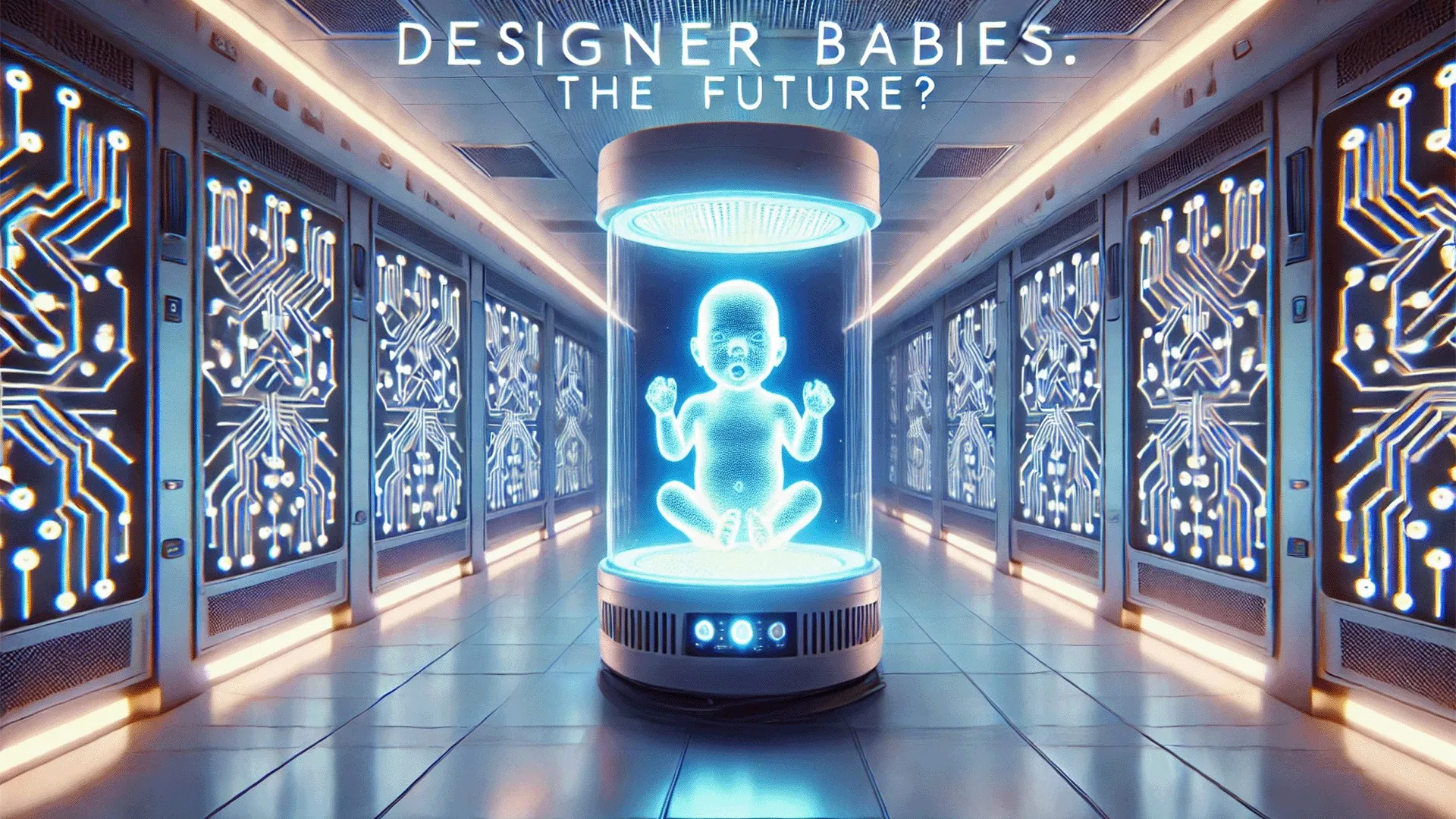Introduction: A Glimpse Into Tomorrow's Possibilities Imagine a future where a single injection during pregnancy could alter a baby's DNA, not just
Introduction: A Glimpse Into Tomorrow’s Possibilities
Imagine a future where a single injection during pregnancy could alter a baby’s DNA, not just to prevent disease but to enhance every aspect of human potential. The convergence of biotechnology and artificial intelligence (AI) holds the promise of redefining what it means to be human. With the advent of AI-driven nanotechnology, a child could be born with intelligence levels far beyond current human limits, heightened physical capabilities, and immunity to previously untreatable diseases. But what does this mean for our society? Will it usher in a new era of human potential or ignite unprecedented ethical dilemmas?
This article explores the mechanics, benefits, risks, and the ethical questions surrounding the possibility of AI nanotechnology reshaping human DNA for superhuman growth.
The Science Behind the Vision
AI Nanotechnology: The Mechanism of Change
At the core of this revolutionary idea lies nanomedicine powered by AI. Picture billions of nanobots, each smaller than a human cell, programmed with sophisticated AI algorithms designed to act as genetic engineers. These nanobots could locate specific DNA sequences within the developing fetus and modify them with extraordinary precision.
How It Works:
- Mapping Genetic Blueprints: AI algorithms would first map the baby’s genome, identifying areas linked to health, intelligence, and physical traits.
- Precision Gene Editing: The nanobots would then employ advanced gene-editing tools, similar to CRISPR, to make the necessary adjustments.
- Continuous Monitoring: Throughout the pregnancy, the AI would monitor the changes, ensuring that the alterations produce the desired outcomes without unintended consequences.
Health and Disease Immunity: A New Standard for Health
One of the most immediate benefits of AI-driven DNA modification would be robust health. By manipulating specific genes, the AI could render a child immune to hereditary diseases such as cystic fibrosis, Huntington’s disease, and even forms of cancer.
Enhanced Immune System
AI algorithms could be tailored to strengthen the body’s natural defenses. For example:
- Boosted Immune Genes: DNA segments associated with immune responses could be enhanced to fight off viral and bacterial infections more effectively.
- Disease Anticipation: The AI could preemptively edit genes to respond to potential pandemics or emerging pathogens, effectively future-proofing the immune system.
Cognitive Enhancement: Redefining Intelligence
Perhaps the most tantalizing promise of AI nanotechnology is cognitive enhancement. Enhancing a baby’s brain during its formation could lead to accelerated learning, improved memory, and exceptional problem-solving abilities.
Mechanism of Cognitive Enhancement
AI-guided nanobots could stimulate the formation of additional synapses, increasing neural connectivity. This would enable the brain to process information more quickly and with greater accuracy.
Potential Outcomes:
- Early Mastery of Complex Skills: Children could become proficient in math, music, or language at an early age.
- Advanced Problem Solving: Enhanced cognitive capacity could result in groundbreaking contributions to fields like quantum physics and biomedical research before a child reaches adulthood.
- Creative Thinking: The AI could identify and enhance genes associated with creativity, fostering innovation across multiple domains.
The Potential for Superhuman Abilities
While improved health and intelligence are groundbreaking, the implications for physical traits are equally fascinating. AI nanotechnology could potentially bestow enhanced reflexes, superior strength, and exceptional endurance.
Physical Augmentation
Through selective genetic modifications, future generations might possess physical capabilities that outmatch those of any human athlete today:
- Enhanced Muscular Efficiency: Genes linked to muscle composition could be optimized for strength and stamina.
- Rapid Healing: AI-driven edits could promote faster cell regeneration, reducing recovery time from injuries and potentially extending lifespans.
- Heightened Senses: Genetic tweaks could sharpen vision, hearing, and other senses, enabling superhuman levels of perception.
Check out how Robot Revolution can benefit your daily life, click here to find more.
Ethical and Societal Implications: Pandora’s Box?
The Divide Between Natural and Enhanced Humans
The introduction of such technology could lead to a significant societal rift. Would there be an elite class of enhanced individuals dominating various aspects of life, while natural humans are left behind?
Key Concerns:
- Economic Disparities: Access to AI-driven DNA enhancements might be restricted to the wealthy, exacerbating social and economic inequalities.
- Employment: Enhanced individuals could monopolize jobs requiring high intelligence or physical prowess, leaving natural humans at a disadvantage.
Loss of Genetic Diversity
Uniform choices by parents—favoring high intelligence, disease resistance, and specific physical traits—could create a narrow gene pool. This reduction in genetic diversity might pose unforeseen risks for human evolution, potentially making society more susceptible to new diseases or environmental changes.
The Role of Regulation and Oversight
For AI nanotechnology to transition from theory to practice responsibly, international regulations and ethical guidelines must be established.
Policy Recommendations:
- Global Bioethics Committees: Panels comprised of geneticists, AI researchers, ethicists, and policymakers should oversee the deployment of such technology.
- Strict Guidelines: Regulations must ensure that genetic modifications do not promote discrimination or amplify existing inequalities.
- Transparent Data Handling: AI algorithms should be monitored to prevent misuse or unintended consequences in gene editing.
Future Speculations and Real-World Implications
Though the idea of AI nanotechnology altering DNA remains speculative, advancements in related fields suggest that we are not as far from this reality as it may seem. Researchers have already utilized CRISPR technology for gene-editing experiments, while AI continues to revolutionize healthcare diagnostics and treatment protocols.
The Road Ahead:
- Scientific Milestones: Continued breakthroughs in nanotechnology and AI could see the development of precise DNA-altering procedures within the next few decades.
- Public Perception and Acceptance: Societal attitudes towards genetic modification will play a crucial role. Will people embrace this new era of “designer babies,” or will there be a pushback, valuing natural birth processes?
- Long-Term Studies: If implemented, multi-generational studies would be necessary to monitor the effects of genetic changes, ensuring that no harmful mutations are passed down to future generations.
Conclusion: Embracing Progress with Caution
The idea of using AI nanotechnology to alter a baby’s DNA for superhuman growth is both thrilling and alarming. While the potential to eradicate diseases and boost human capabilities could usher in a golden era of human achievement, the risks are equally formidable. Ethical considerations, regulatory oversight, and global cooperation will be paramount in shaping this future responsibly. As we stand on the brink of unprecedented technological progress, the question remains: Will humanity harness these powers for the collective good, or will it fall into the trap of inequality and bioethical dilemmas?
Check out how Robot Revolution can benefit your daily life, click here to find more.


